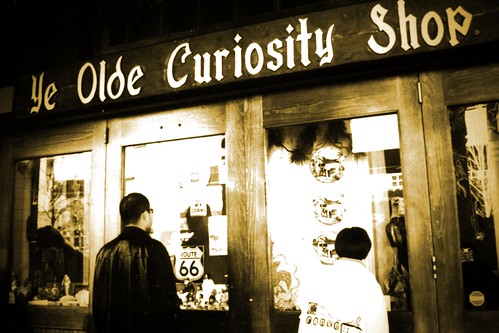In his post, Andy mentions something I believe many teachers and trainers struggle with, regardless of what discipline or issue they are dealing with (i.e., not just technology):
"The ultimate lesson I try to impart to my students is to be adventurous, be curious, and don’t worry about clicking on “the wrong thing” because honestly you really can’t hurt the computer. There is so much agony raveled around “messing up the machine”...
 |
| Photo by Laser Guided, via Flickr CC |
Beyond content and other factors that are dictated by events on the ground of each class, are there overarching pedagogical techniques we can use to help this along? I ask this humbly as a mostly self-taught instructor, knowing full well there isn't any one or even one set of silver bullet solutions. In some of my previous posts and several times during some recent WGIL Room podcasts, I've discussed the related issue of fostering student creativity. In many ways I believe creativity and curiosity are intertwined, if not co-dependent. It's hard to have one without the other.
Andy's insights about curiosity and adventure are eminently applicable to ourselves as well. If an instructor does not approach teaching with at least some degree of curiosity and sense of adventure (let alone, creativity), how can they hope to bring this out in their students? This all ties in, of course, to the broader idea of being an authentic teacher. This is something I struggle with constantly, and not just because I teach students at a distance or because I have a million other duties and responsibilities besides teaching. As with most things, there is a delicate balance that needs to be maintained. Between institutional needs and student needs. Between immediate desires and lifelong learning. Between fish and fishing rods. Between work and fun. Between available time and sanity. Easier said than done, especially given my somewhat unique and challenging teaching environment, right?
 |
| Photo by Luciano Joachim, via Flickr CC |
I will try, after the Fall term October rush, to draw up another post, on what actual changes I implemented, and if it had any apparent change in learning outcomes. If I forget, remind me!










